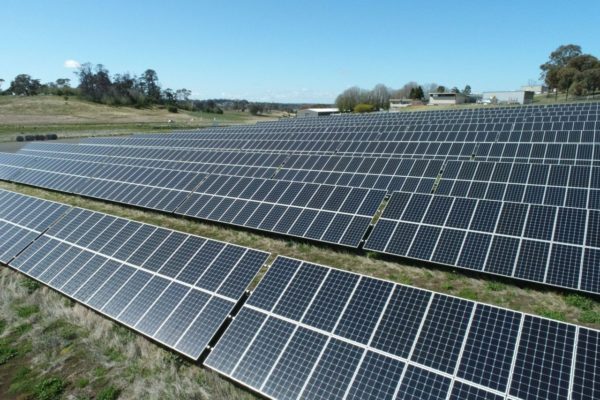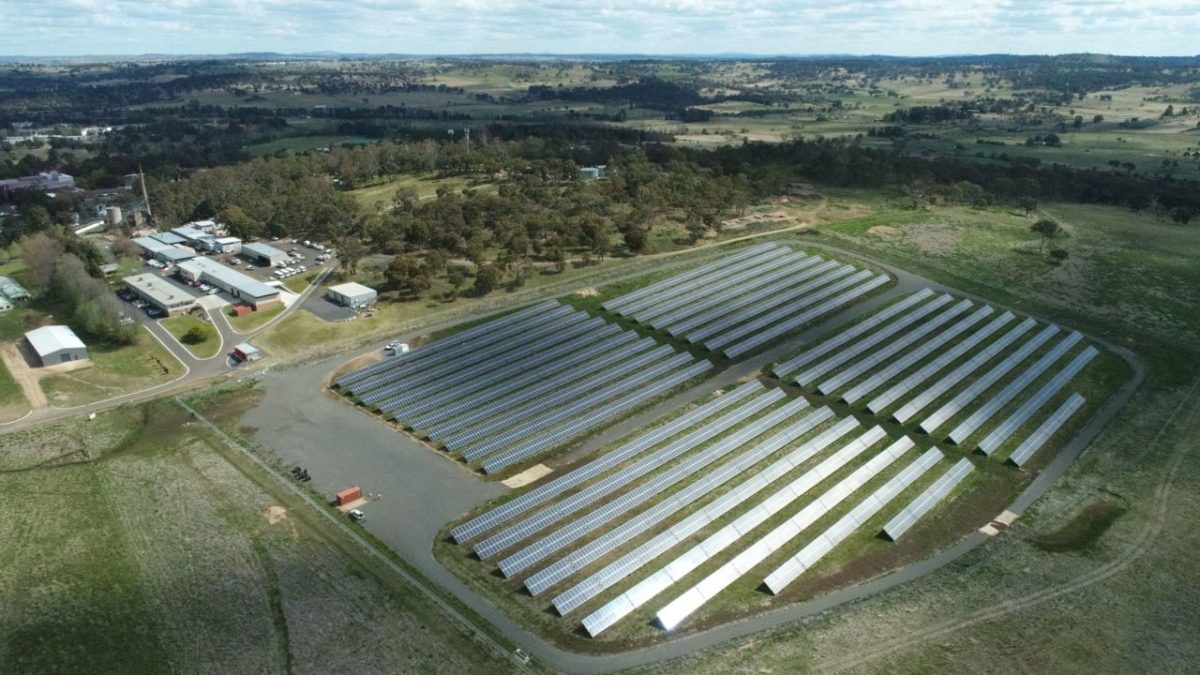New South Wales’s (NSW) University of New England (UNE) has switched on its very own 3.2 MW solar farm with the help of Solgen Energy Group (Solgen) and Aurecon. The array’s annual generation of approximately 5.2 GWh is capable of supplying up to 50% of the campus’s energy needs.
Solgen is no stranger to delivering solar solutions to university campuses, indeed considering the company only recently installed a 2.5 MW system across 25 different rooftops at La Trobe University, it is safe to say Solgen installers have spent more time on campus this year than most students.
UNE’s $6.3 million solar farm features 8,700 fixed, ground-mounted solar modules on a patch of land alongside the campus’ northern edge. The project has been a long time coming as it commenced in 2016 but suffered from delays due to UNE’s higher voltage network and the complications brought with it.

UNE Vice-Chancellor and CEO Brigid Heywood said the farm “is part of our wider commitment to the use of renewables…Our new solar farm is expected to reduce carbon emissions by up to 5,000 tonnes per year, which is the equivalent of taking 1,000 cars off the road or powering more than 800 households.”
UNE have officially switched on their solar farm, capable of meeting up to 50 per cent of the academic campus power needs.
Pictured: our GM of Project Delivery, Clayton Eigenmann, with UNE Chancellor, VC & CEO and COO.https://t.co/UuQM24EoEL pic.twitter.com/LuT0BgNQY5— Solgen Energy Group (@SolgenEnergy) November 24, 2020
“Clean energy generated by our own facility will also be cheaper energy,” continued Heywood, “and allow UNE to direct the considerable savings realised towards teaching and research. We anticipate the farm will deliver $7-8 million in savings to the university within ten years.” Moreover, Heywood stressed that the solar farm would also function as an important learning tool, enabling students and researchers a practical space for renewable energy research.
Now that the project is up and running UNE is keen to take it further with plans for a Phase 2 of the project. Phase 2 will see an expansion of the project to ensure 100% of the campus’s academic campus energy needs are met by the farm and a battery storage system.
This content is protected by copyright and may not be reused. If you want to cooperate with us and would like to reuse some of our content, please contact: editors@pv-magazine.com.









2 comments
By submitting this form you agree to pv magazine using your data for the purposes of publishing your comment.
Your personal data will only be disclosed or otherwise transmitted to third parties for the purposes of spam filtering or if this is necessary for technical maintenance of the website. Any other transfer to third parties will not take place unless this is justified on the basis of applicable data protection regulations or if pv magazine is legally obliged to do so.
You may revoke this consent at any time with effect for the future, in which case your personal data will be deleted immediately. Otherwise, your data will be deleted if pv magazine has processed your request or the purpose of data storage is fulfilled.
Further information on data privacy can be found in our Data Protection Policy.